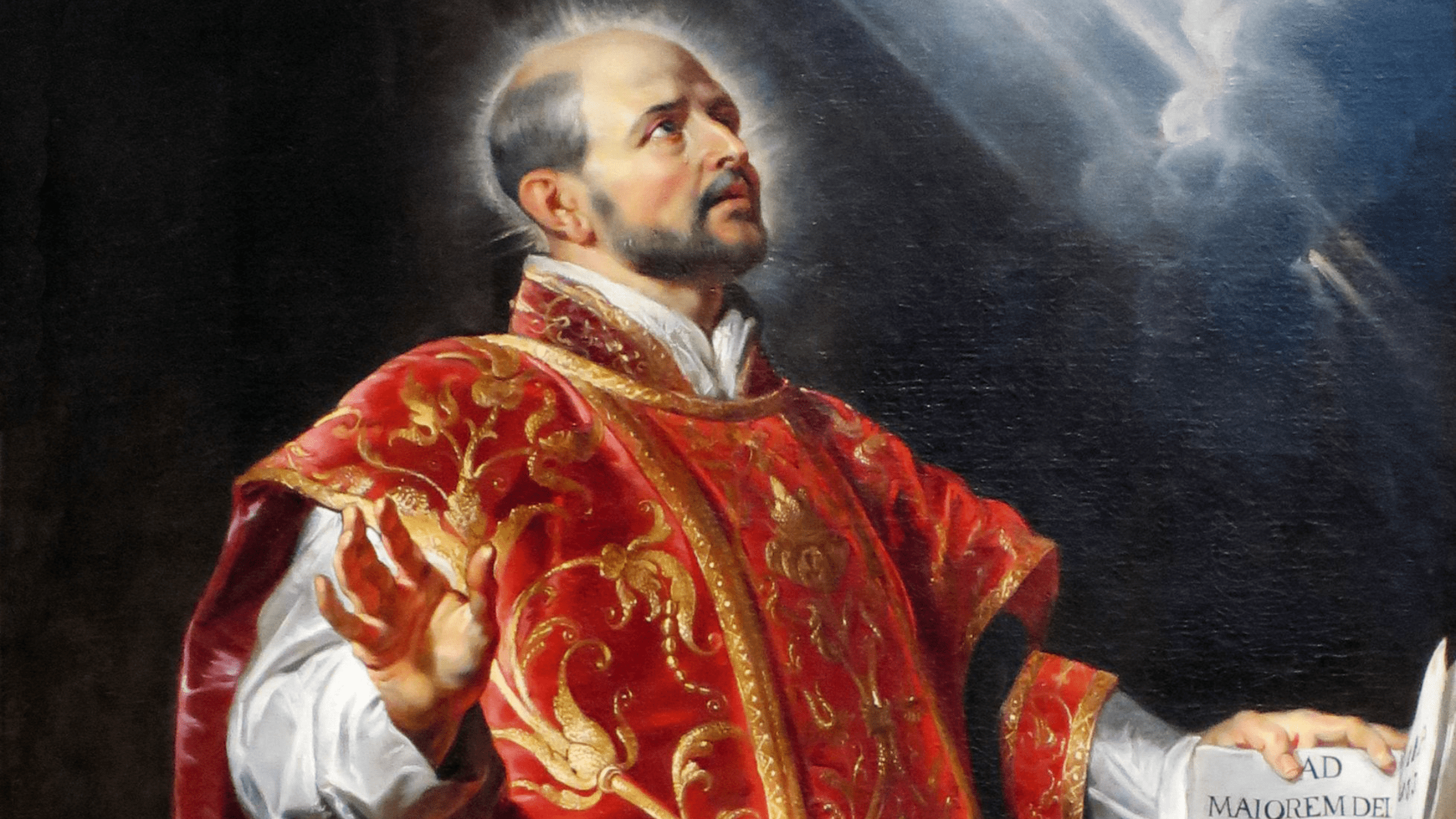Sin is ultimately a refusal to believe that what God wants is my happiness and fulfilment.
– St Ignatius of Loyola
Saint Ignatius of Loyola – Feast: 31st July
St Ignatius (1491-1556) was born into a noble family at Loyola (Spain). He was injured at the battle of Pamplona (1521) and experienced a conversion during his convalescence. He went on to write the Spiritual Exercises, study theology at Paris and, with his companions, found the Society of Jesus. The Jesuits have had a huge impact on the reform of the Church, the education of the young and the preaching of the Gospel to every corner of the world.
The Awareness Examen
This is extracted from our book Praying with St Ignatius and Pope Francis by Dermot Mansfield, SJ.
There is one form of prayer Ignatius gave us that some would consider the best heritage this thoughtful “pilgrim” has left us, for our own day-to-day living, as we journey onwards. In his wish for us to become discerning persons, he recommended that every day we pause for prayer, and reflect on the events of the day and their meaning for us. It is variously called the Consciousness Examen, or the Awareness Examen, and has five parts to it. Usually it is best made in the evening. Again, in noting the following outline, some actual reflection and prayer is best.
1. Recollection
Firstly, recollecting myself in God’s presence, I think of the day just past, and give thanks. It has been a gift, for God is always gifting me. And thankfulness itself is a great gift. Lord, thank you for your gifts, for your presence this day. Thank you too for the wonder of my being.
2. Light
Secondly, I pray for light, in order to reflect more deeply. O Holy Spirit, giver of wisdom, grant me light, give me a discerning heart.
3. Examen
Thirdly, I look back over the day, and “examine” it, so to speak. I notice where God has indeed come to me: through a person, in someone’s courtesy, or in something I read, or nature’s beauty, or in an experience of prayer. In other words, I note the moments of grace, and where my own actions and responses have been good and grace-filled. But also I try to see where my response to events and people has been less than good. Where have I overlooked something, or failed to listen, or have not reached out to someone in need? Perhaps, then, I realise ways in which I have been neglectful, negative.
4. Contrition
Fourthly, then, with a contrite heart I turn towards the Lord’s mercy. Have mercy on me, Lord, in your kindness. Heal me of my sins and weaknesses. In the secret of my heart, teach me humility and wisdom.
5. The Future
Fifthly, I conclude my prayer by looking forward, towards tomorrow, and to the future. I do so, in consolation, by summoning up great hope in God’s
love, present to me now, and always there for me along the road ahead. Lord, thank you for your presence and healing. Truly I know you go before me always. Let me therefore see you present in all things. Allow me to receive your gift of hope, and to bring hope to those I meet along the path ahead. Amen
https://www.ctsbooks.org/product/prayer-with-st-ignatius-and-pope-francis/
https://www.ctsbooks.org/product/how-to-be-happy/
Want the Saint of the Day sent straight to your inbox? Sign up for our Saint of the Day emails and we’ll help you get to know the saints by sending you an email on the feast or memorial of every major saint, and on the optional memorial of select other saints. Opt out at any time.

